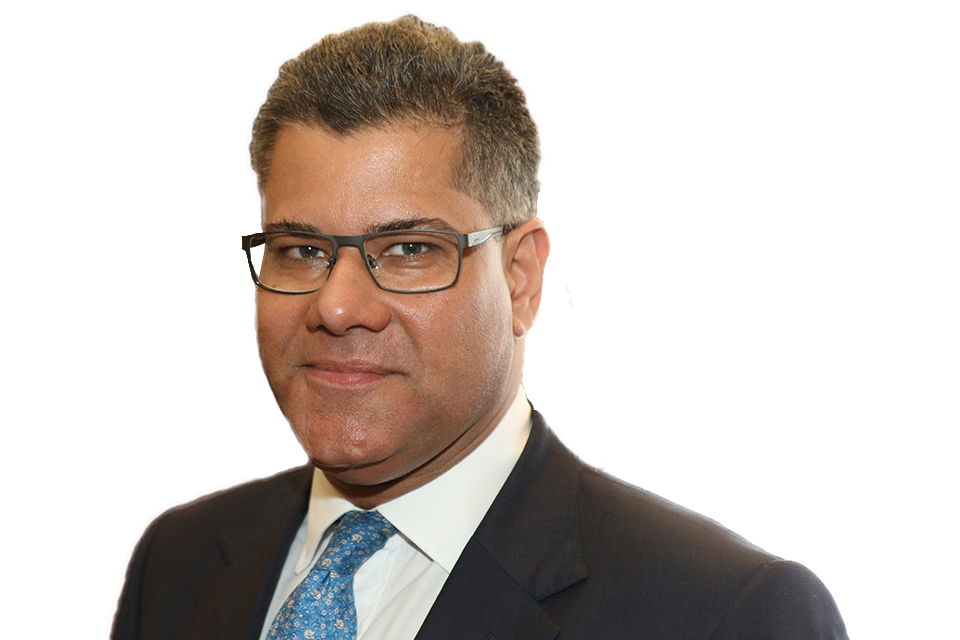Matt Hancock – 2021 Statement on Covid-19
The statement made by Matt Hancock, the Secretary of State for Health and Social Care, on 14 June 2021.
Mr Speaker, these past six months, we have all been involved in a race between the vaccine and the virus. Our vaccination programme has been delivered at incredible pace: we have delivered 71 million doses into 41 million arms; and over 93% of people aged 40 and over have now received at least one dose. Because of this pace, we are able to open up vaccinations to those aged 23 and 24 tomorrow.
It is this protection that has allowed us to take the first three steps of our road map, meaning that right now we have one of the most open economies and societies in Europe. We have been able to remove the most burdensome of the restrictions and restore so many of the freedoms that we hold dear. At every stage, we have looked at the data, set against the four tests that the Prime Minister set out to this House in February. The fourth of those tests is that our assessment of the risk is not fundamentally changed by new variants of concern.
The delta variant now accounts for over 90% of cases across the country. We know that the delta variant spreads more easily and there is evidence that the risk of hospitalisation is higher than for the previously dominant alpha variant. Case numbers are rising, up 64% on last week in England, but the whole purpose of vaccination is to break the link between cases and hospitalisations and deaths. That link is clearly weaker than it once was. However, over the past week, we have seen hospitalisations start to rise; up by 50%. Thankfully, the number of deaths has not risen and remains very low.
Sadly, before the vaccine, we saw that a rise in hospitalisations inevitably led to a rise in deaths a couple of weeks later. The vaccine in changing that, but it is simply too early to know how effectively the link to deaths has been broken. We do know that, after a single dose of the vaccine, the effectiveness is lower against the delta variant, at around 33% reduction in symptomatic disease. However, the good news, confirmed with new data published today, is that two doses of the vaccine are just as effective against hospital admission with the delta variant compared with the alpha variant. In fact, once you have had two doses, the vaccines may be even slightly more effective against hospitalisation if you have caught the new delta variant. This gives me confidence that, while the protection comes more from the second dose, and so takes longer to reach, the protection we will get after that second jab is highly effective—and, if anything, slightly better—against the delta variant. So, for the purpose of the restrictions, while it will take us a little longer to build the full protection we need through the vaccine, all the science is telling us that we will get there. Of course, all this says that it is so important that everyone gets both doses when the call comes. Even today, I have had messages from people who have had their jab, and I am so grateful to each and every person for making our country safer. At every stage of the road map, we have taken the time to check it is safe to take the next step. Our task is to make sure the vaccine can get ahead in the race between the vaccine and the virus.
I know that so many people have been working so hard, making sacrifices, being cautious and careful, and doing their bit to help this country down the road map. I know that people have been planning and arranging important moments and that businesses have been gearing up to reopen. So it is with a heavy heart, and faced with this reality, that we have made the difficult decision not to move ahead with step 4 next week. Instead, we will pause for up to four weeks until 19 July, with a review of the data after two weeks. During this crucial time, we will be drawing on everything we know works when fighting this virus and will use the extra time to deliver the extra protection we need.
Despite the incredible uptake we have seen in this country, there are still people we need to protect: 1.3 million people who are over 50 and 4.5 million over-40s have had a first jab but not yet a second. The pause will save thousands of lives by allowing us to get the majority of these second jabs done before restrictions are eased further. We are today reducing the time from first to second jab for all people aged 40 and over from 12 weeks to eight weeks to accelerate the programme. If, like me, you are in your 40s and you have a second jab booked 12 weeks after your first, the NHS will be in touch to bring it forward, or you can rebook on the national booking service. Our aim is that around two thirds of all adults will have had both doses by 19 July. I can tell the House that we have been able to deliver the vaccine programme faster than planned, so we can bring forward the moment when we will have offered every adult a first dose of the vaccine to 19 July, too. In this race between the vaccine and the virus, we are giving the vaccine all the support we can.
We have always said that we will ease restrictions as soon as we are able safely to do so. Even though we cannot take step 4 on Monday, I am pleased that we are able carefully to ease restrictions in some areas. We are removing the 30-person gathering limit for weddings, receptions and commemorative events—subject, of course, to social distancing guidelines. I am very grateful for the work of the weddings taskforce on this relaxation. We will be running another phase of our pilots for large events at higher capacities, including some at full capacity, like the Wimbledon finals. We are easing rules in care homes, including removing the requirement for residents to isolate for 14 days after visits out, and we are allowing out-of-school settings to organise residential visits in bubbles of up to 30 children, in line with the current position for schools. I thank my hon. Friend the Member for Altrincham and Sale West (Sir Graham Brady) for his work in this area.
Even though we have not been able to take the full step as we wanted, I know that these cautious changes will mean a lot to many people and move us a little bit closer to normal life. As we do this, we will keep giving people the support they need. We are extending our asymptomatic testing offer until the end of July. We have put in place one of the most extensive financial support packages in the world, and we will continue to deliver enhanced support for the worst-affected areas.
We have seen how this approach can work—for example, in Bolton. Cases in Bolton have fallen by almost a third over the past three weeks. Even as hospitalisations have risen across the north-west, in Bolton, they have fallen by more than half. Last week, we introduced enhanced support in Greater Manchester and Lancashire, and I can now tell the House that we are extending these extra measures—surge testing, cautious guidance and extra resources for vaccination—to Birmingham, Blackpool, Cheshire, including Warrington, and the Liverpool city region. We know from experience that this approach can work, but we need everyone to play their part, so I urge everyone in these areas to get tested and to come forward for the support that is on offer. When you get the call, get the jab and help keep us on the road to recovery.
Finally, none of this would be possible without our vaccine programme. Without the vaccine, faced with these rising cases and hospitalisations, the clinical recommendation would have been to go back towards lockdown. The Vaccines Taskforce is critical to the work to deliver supplies, the work on booster jabs and ensuring we are protected for the future. Dame Kate Bingham did a formidable job in melding the best possible team, and I would like to congratulate her and everyone else who was recognised in Her Majesty’s birthday honours this weekend. I am delighted to be able to tell the House that Sir Richard Sykes, one of Britain’s most acknowledged biochemists and industry leaders, has agreed to take up the position of chair of the VTF. Sir Richard brings to bear experience from leadership positions in both the public and the private sectors, and I am delighted to have him on board to lead the team in the next stage of this mission.
This race between the vaccines and the virus is not over yet. These difficult restrictions challenge our lives in so many ways, but they play a vital role in holding the virus back and protecting people while we get these jabs done. So let us all play our part to keep us safe from this dreadful disease. I commend this statement to the House.



